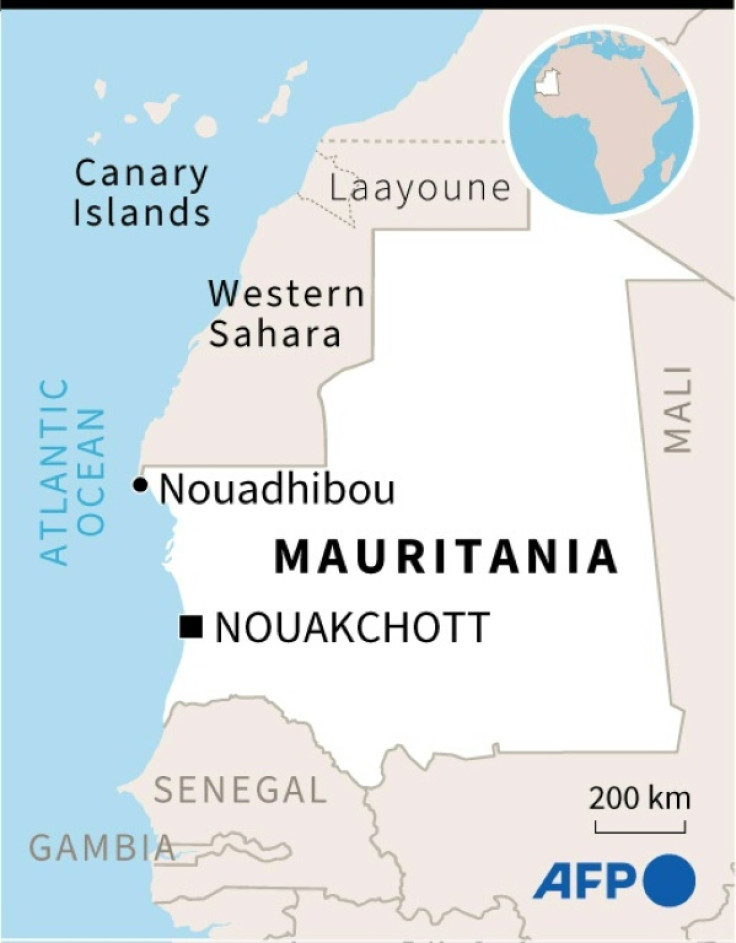
At least 15 migrants have died and dozens are missing after their boat capsized off Mauritania, the International Organization for Migration (IOM) and local sources said Wednesday, the latest in a string of migrant tragedies off the coast of West Africa.
"We are deeply saddened by the death of 15 migrants and the estimated disappearance at sea of 195+ people after a boat capsized in Nouakchott," the IOM posted on X.
A Mauritanian coastguard official told AFP on condition of anonymity that at least 25 bodies had been recovered while 103 people were rescued, while several dozen were missing following Monday's disaster.
"Approximately 300 people boarded a pirogue in The Gambia and spent seven days at sea before the boat capsized near Nouakchott on July 22, 2024," the IOM said in a statement.
The UN migration agency added that 120 people had been rescued by Mauritanian Coast Guards, while efforts continued to locate the missing individuals.
"Among the survivors, 10 people were urgently referred to hospitals for medical care, and four unaccompanied and separated children were identified," the IOM said.
The source from the Mauritanian coastguard said the pirogue was carrying 140 to 180 people, mostly Senegalese and Gambian.
The boat had broken up in the middle of the sea and the captain abandoned the vessel, the source said.
Since June, more than 76 boats with more than 6,000 surviving migrants have disembarked in Mauritania, with at least 190 dead and missing migrants, the IOM statement said.
Every year, thousands of Africans fleeing poverty and unemployment in search of a better future embark on the perilous route to Europe.
But the crossing is fraught with tragedy.
In early July, nearly 90 migrants bound for Europe perished when their boat capsized off the coast of Mauritania.
Twenty-six migrants who set sail from Guinea died when their boat sank off Senegal at the beginning of May.
The Atlantic route to Spain's Canary Islands is particularly dangerous because of strong currents, with migrants travelling in overloaded, often unseaworthy, boats without enough drinking water.
But it has grown in popularity due to increased vigilance by authorities in the Mediterranean.
From January 1 to July 15 alone, more than 19,700 migrants arrived irregularly in the Canary Islands using this route, the IOM said.
That is a 160 percent increase from the same period in 2023, when 7,590 migrants were recorded.
Off the coast of North Africa, the Canary Islands lie 100 kilometres (62 miles) away at their closest point.
More than 5,000 migrants died while trying to reach Spain by sea in the first five months of this year, or the equivalent of 33 deaths per day, according to Caminando Fronteras, a Spanish charity.
That is the highest daily number of deaths since it began collating figures in 2007, and the vast majority were on the Atlantic route.







